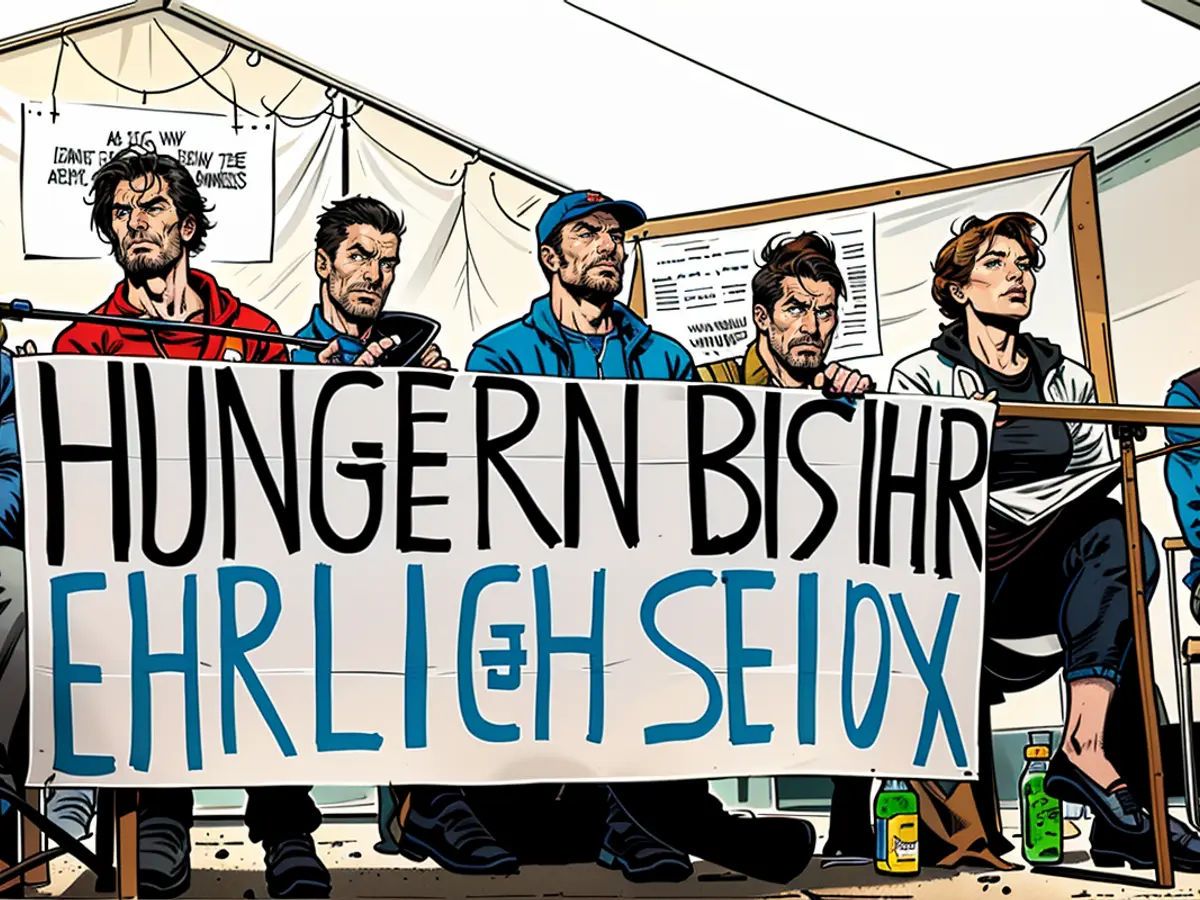"Hunger forced her to be truthful" - Berlin activists' hunger strike evokes minimal empathy and apathy from the public.
The prediction has turned into a reality: The protesters in Berlin's Invalidenpark are taking down their tents and calling off their hunger strike. Their demands haven't gotten the attention they hoped for from the public. No government declaration from Chancellor Scholz has surfaced either. In a statement, the activists explain, "So, we have decided to put an end to the 'Hunger for Honesty' campaign."
Climate activist Wolfgang Metzeler-Kick started the protest on March 7 with a hunger strike. Soon after, more people joined him, petitioning the Chancellor for a public acknowledgment of the climate crisis and a pledge to enact radical climate policies. Scholz didn't meet their expectations and instead accused the protesters of blackmail.
Metzeler-Kick initially declared he'd go on a dry hunger strike, avoiding food and water. However, the medical team advised that his health was in danger. Resetting the clock, the protesters gave Scholz a week to provide the requested declaration.
"We can't count on the Chancellor," says the statement from the protesters. They also express discontent with society. According to Metzeler-Kick, journalists broadcasted very little about the hunger strike and distorted the reasons behind it. "Society showed little empathy, and the outcome of the European elections showed that climate protection, despite recent storm surges and a disastrous climate policy, holds little meaning," he critiqued in a stern interview.
Dissatisfaction within the hunger strike camp concerning psychological distress
Disagreements and internal conflicts had emerged in the camp and campaign organization. In a stern letter, Richard Cluse, former camp member and co-initiator of the campaign, expressed his concerns about the worsening mental state of several participants.
"There has been a gradual loss of reality among many participants who can no longer tell when rules or limits are being broken," reflects Cluse. "Rules that are normally endorsed in climate activism are being breached repeatedly." Supporters pushed their own limits and faced even greater threat because of it, increasing the strain across the group. "I can no longer tolerate this situation."
Since early March, eight people had been on hunger strike. One of the demonstrators pursued a silent strike. Two others participated shortly after the European elections but only for two days.
Read also:
The protesters' hunger strike, inspired by climate concerns, has sparked a European-wide debate, with many seeing it as a call to action during the upcoming elections. Despite the health concerns of Metzeler-Kick, the hunger strike continues to gain traction, echoing the sentiment expressed in the statement, "Death before dishonesty."
The climate strike in Berlin has resonated beyond Berlin's city limits, inspiring other climate activists to also stage hunger strikes in various European cities. This widespread action has drawn attention to the urgency of addressing climate change and the need for immediate policy changes.
The term "Climate Strike Death" has been trending on European social media platforms, symbolizing the activists' determination to sacrifice everything for the climate. The hunger strike in Berlin has put climate change at the forefront of political discussions in Europe, forcing leaders to reconsider their stance on climate policies.







